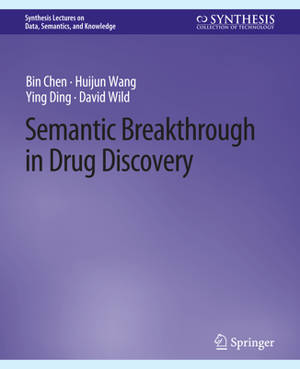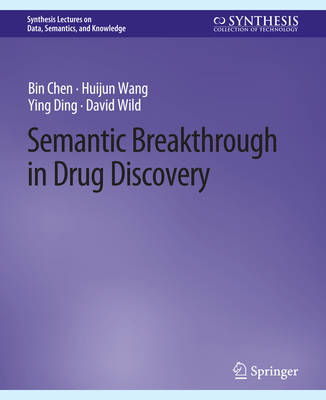
Je cadeautjes zeker op tijd in huis hebben voor de feestdagen? Kom langs in onze winkels en vind het perfecte geschenk!
- Afhalen na 1 uur in een winkel met voorraad
- Gratis thuislevering in België vanaf € 30
- Ruim aanbod met 7 miljoen producten
Je cadeautjes zeker op tijd in huis hebben voor de feestdagen? Kom langs in onze winkels en vind het perfecte geschenk!
- Afhalen na 1 uur in een winkel met voorraad
- Gratis thuislevering in België vanaf € 30
- Ruim aanbod met 7 miljoen producten
Zoeken
€ 37,45
+ 74 punten
Uitvoering
Omschrijving
The current drug development paradigm---sometimes expressed as, ``One disease, one target, one drug''---is under question, as relatively few drugs have reached the market in the last two decades. Meanwhile, the research focus of drug discovery is being placed on the study of drug action on biological systems as a whole, rather than on individual components of such systems. The vast amount of biological information about genes and proteins and their modulation by small molecules is pushing drug discovery to its next critical steps, involving the integration of chemical knowledge with these biological databases. Systematic integration of these heterogeneous datasets and the provision of algorithms to mine the integrated datasets would enable investigation of the complex mechanisms of drug action; however, traditional approaches face challenges in the representation and integration of multi-scale datasets, and in the discovery of underlying knowledge in the integrated datasets. The Semantic Web, envisioned to enable machines to understand and respond to complex human requests and to retrieve relevant, yet distributed, data, has the potential to trigger system-level chemical-biological innovations. Chem2Bio2RDF is presented as an example of utilizing Semantic Web technologies to enable intelligent analyses for drug discovery.Table of Contents: Introduction / Data Representation and Integration Using RDF / Data Representation and Integration Using OWL / Finding Complex Biological Relationships in PubMed Articles using Bio-LDA / Integrated Semantic Approach for Systems Chemical Biology Knowledge Discovery / Semantic Link Association Prediction / Conclusions / References / Authors' Biographies
Specificaties
Betrokkenen
- Auteur(s):
- Uitgeverij:
Inhoud
- Aantal bladzijden:
- 10
- Taal:
- Engels
- Reeks:
Eigenschappen
- Productcode (EAN):
- 9783031794551
- Verschijningsdatum:
- 31/10/2014
- Uitvoering:
- Paperback
- Formaat:
- Trade paperback (VS)
- Afmetingen:
- 191 mm x 235 mm
- Gewicht:
- 285 g

Alleen bij Standaard Boekhandel
+ 74 punten op je klantenkaart van Standaard Boekhandel
Beoordelingen
We publiceren alleen reviews die voldoen aan de voorwaarden voor reviews. Bekijk onze voorwaarden voor reviews.









